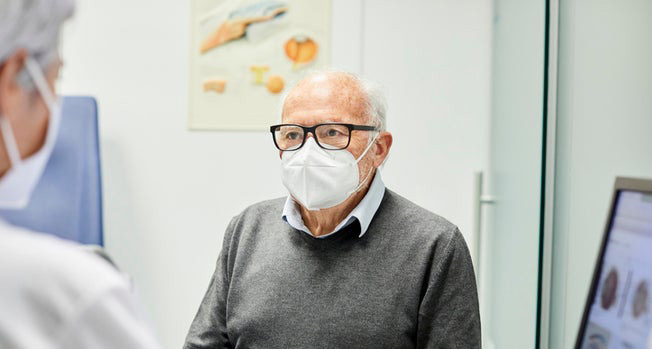about whether Rx treatments are right for you
Treating COVID-19
Before Treatment
Oral Rx treatment options are available for appropriate patients who have high-risk factors that could cause their COVID-19 to become severe, even if their symptoms start out mild.
If you have symptoms, don't wait to see if they get better or worse—oral treatments are available and can be taken at home, but they must be started within 5 days from when your symptoms begin.
If you are prescribed a treatment for COVID-19, talk to your healthcare provider about any medications you are currently taking, including prescriptions, over-the-counter medications, vitamins, and herbal supplements. Some medicines may interact with COVID-19 treatments and cause serious side effects.
Keep a list of your medications to show your healthcare provider when you are prescribed a new medication.


